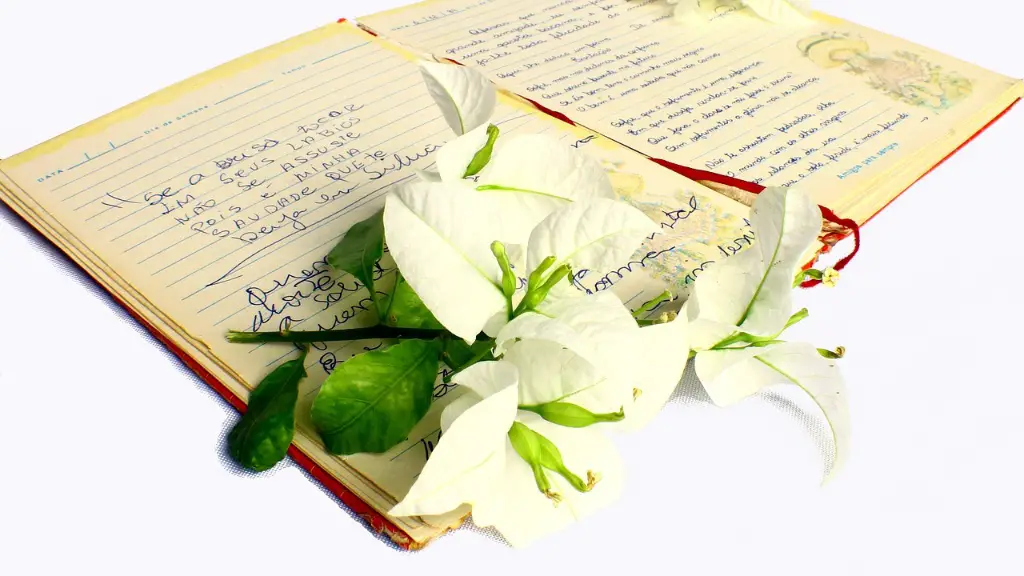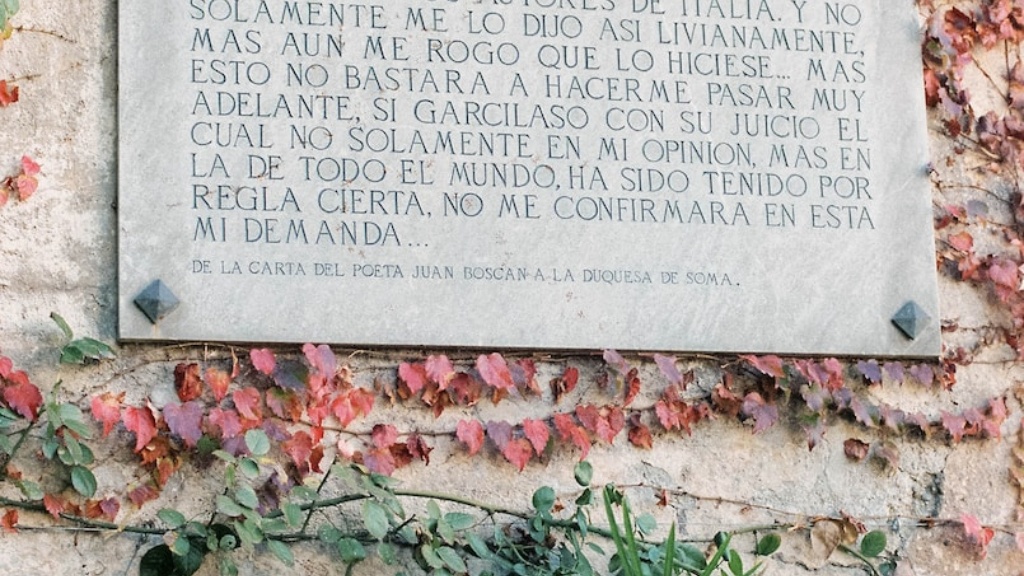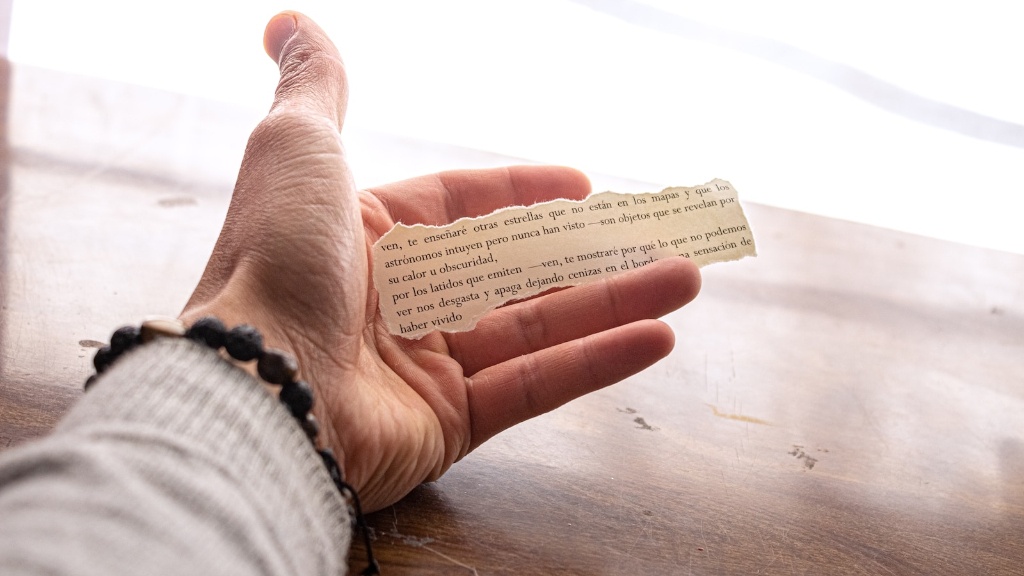What is Spoken Word Poetry According to Sarah Kay?
Sarah Kay is an award-winning American poet and founder of the Project Verse program in New York City. Her powerful spoken word performances have earned her global recognition, and she is considered one of the most influential voices in the modern poetry movement. Kay’s spoken word performances are characterized by their passionate energy and strong emotion. But what exactly is spoken word poetry according to Sarah Kay?
Kay defines spoken word poetry as “a way of communicating where you can use words to express your thoughts, feelings, and experiences in a creative, powerful and meaningful way.” She believes that the power of spoken word can be used to empower the voiceless, to reach out to listeners, and to encourage audience members to adopt a new perspective. However, according to her,spoken word poetry is not only meant to entertain, but to “open us up to an entirely new way of understanding our world.”
The Benefits of Spoken Word Poetry
Spoken word is a powerful tool for storytelling, allowing the poet to deliver a unique message in a way that can have a profound impact on the audience. Because of the rhythm and delivery of spoken word, it can reach people on a more visceral level than the written word. It is also a great tool for drawing attention to social issues in a powerful, yet poetic way. Kay believes that spoken word poetry is also an effective way to communicate more personal stories and that anyone can use it to explore the depth of their emotions and express them to the world.
In Sarah Kay’s view, spoken word poetry is potentially transformative; it allows the artist to take on new perspectives, learn to empathize, and “connect to the way other people live and experience the world in a vulnerable, intimate way.” For example, Kay’s poetics, which are often centered around themes of loss and heartbreak, evoke compassion and understanding in her listeners. It can also be used to inspire and motivate people, giving them the courage to conquer their fears and live with courage, joy and ambition.
Elements of Spoken Word Poetry
According to Sarah Kay, the key element and foundation of spoken word poetry is story-telling. It is about telling stories about a person’s life in a poetic and meaningful way. Kay also emphasizes the importance of rhythm and delivery in her works, and she suggests that poets should work on developing a unique voice, a sense of character, and their own distinct rhythm. She believes that with practice, anyone can master the art of spoken word.
Further, Kay emphasizes the importance of connecting with the audience, saying that it is important to “connect with your story, and bring the listener on a journey.” The goal of spoken word is to create an emotional experience for the audience, one that will leave them feeling moved. To do this, Kay suggests that poets should “use passion, move your body and connect with the emotion and sentiment of the story you’re telling.”
What is the Future of Spoken Word Poetry?
In the current digital age, spoken word poetry has become even more popular, as it is easily accessible to anyone with access to the Internet. Kay believes that, contrary to popular belief, the art will continue to rise in popularity as more artists share their stories and spread their messages through the use of spoken word poetry. She predicts that it will be embraced by the upcoming generation, inspiring them to use it as a way to make a difference in the world.
As Sarah Kay states, spoken word poetry “has the potential to bring real and lasting change.” To accomplish this, she says poets must use their words and stories to “build bridges and create new connections between people and different communities.” Kay believes that the art form can and will be used to create positive change in people’s lives and to challenge societal norms.
How to Learn Spoken Word Poetry
Sarah Kay’s advice for learning spoken word poetry is to start small and practice as much as possible. She believes that anyone can create powerful spoken word poetry, regardless of their background or skill set. She suggests starting with simple exercises, such as writing a few lines of poetry and reading it aloud to yourself. Then, she recommends creating a personal library—saving poems and writing down notes on them—which can be used as a source of inspiration. Finally, Kay recommends performing in front of a small audience and paying attention to how they interact with the poem.
Sarah Kay believes there are no hard and fast rules when it comes to mastering the art of spoken word poetry—everyone has their own style and techniques. She encourages aspiring spoken word poets to “experiment, be creative and don’t be afraid to fail”. And, like any other art form, it takes constant practice to become better.
The Message Behind Sarah Kay’s Spoken Word Poetry
In her poems, Sarah Kay encourages her listeners to live with courage and joy, and to tell their stories even if their voices shake. She also emphasizes the importance of being open-minded and understanding towards others. Kay believes that the power of spoken word poetry lies in its ability to connect and heal, noting that “we need music and stories that speak to each other from all corners of the globe.” By connecting with her audience and opening their minds to new experiences and perspectives, Kay hopes to create an open, understanding and trusting world.
The Impact of Sarah Kay’s Poetry
Sarah Kay’s poetic works have been widely appreciated and praised all over the world, with her powerful messages having a great impact on her audiences. Her powerful spoken word performances, coupled with her strong passion and uplifting messages, have touched many people, giving them the courage to chase their dreams and to make their voices heard. Through her words and actions, Kay has encouraged people to view the world differently and to connect with one another.
Kay’s works are celebrated throughout the world and she has been widely recognized as one of the most influential voices of the modern poetry movement. Her powerful message of understanding and acceptance has helped many people and continues to inspire them to pursue their dreams and to express themselves through the power of spoken word poetry.
The Art of Freestyle Poetry
Sarah Kay is also a master in the art of freestyle poetry. Freestyle poetry is a form of improvisational poetry that does not rely on traditional structure and rules. Instead, it is a type of spontaneous performance that encourages the poet to use their emotions and imagination to create a unique poem. Kay considers this to be the greatest challenge for poets, as they must be able to quickly create a captivating story without any preparation.
Kay believes that freestyle poetry is a skill that must be practiced and cultivated through careful study and dedication. To do this, she recommends that aspiring freestyle poets listen to as many spoken word performances as possible, take classes and workshops, and engage in open mic events to get a sense of the style and rhythm of the art form.
For Sarah Kay, freestyle poetry is an art form that has the potential to reach people on a deeper level. She believes that in addition to being entertaining and engaging, freestyle poetry can be a powerful tool to help people unlock their creative potential and learn to think outside the box.
The Legacy of Sarah Kay
At the end of the day, Sarah Kay aims to be remembered for inspiring young people to find their own voice and express it in a meaningful way. Through her passionate and passionate performances and her encouraging words, she has given a platform to thousands of aspiring poets, both young and old. Her message of empowerment and understanding continue to make an impact on people’s lives and will continue to do so for generations to come.




